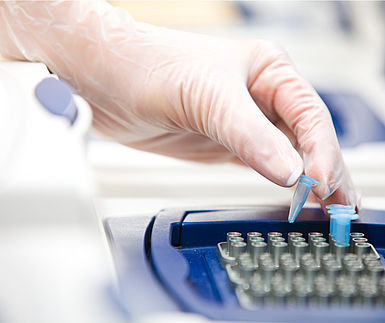Please type a search term (at least two characters)
News
EMPIR project enables biotechnology guidance to be included in new standards

New standards will improve nucleic acid and cell counting measurements to support advances in biotechnology
Completed EMPIR project New underpinning standards for improved bio-analytical measurement in Biotechnology & In vitro Diagnostics (16SIP01, Bio-stand) enabled guidance from previous EMRP projects for nucleic acid quantification and cell counting to be included in new standards through two ISO committees (ISO TC/276 Biotechnology and ISO TC/212 In-vitro diagnostics).
This work contributed to the development of five international standards for counting biological entities, important for diagnosing respiratory infections and identifying microbial pathogens.
The project has provided input to the following published standards:
ISO 20395: 2019 Biotechnology – Requirements for evaluating the performance of quantification methods for nucleic acid target sequences – qPCR and dPCR
ISO 20391-1: 2018 Biotechnology – Cell counting – Part 1: General guidance on cell counting methods
ISO 20391 – 2: 2019 Biotechnology – Cell counting – Part 2: Experimental design and statistical analysis to quantify counting method performance
Project Coordinator John Black from the National Measurement Laboratory (NML) at LGC said:
‘These standards have already had a significant impact within the user communities. One of these (ISO 20395:2019 Requirements for evaluating the performance of quantification methods for nucleic acid target sequences – qPCR and dPCR) has been made freely available by ISO to support the development and implementation of effective COVID-19 testing. The European Commission also highlighted this work as one of their research and innovation initiatives to help tackle the spread of coronavirus and preparedness for other outbreaks’.
This EMPIR project is co-funded by the European Union's Horizon 2020 research and innovation programme and the EMPIR Participating States.
Want to hear more about EURAMET?
Follow us on LinkedIn and Twitter
Carbon dioxide, released from man-made activities, is lowering the pH of the Earth’s oceans, and impacting the health of marine organisms worldwide more
Supporting automated and reconfigurable manufacturing systems more
Working with external project Cool White to test and suggest improvements on the locally available white paints more
The project FutureEnergy has provided new calibration services for ultra-high voltages and a good practice guide on Lightning Impulse dividers more
For many of the 5000 photonics companies in Europe a precise knowledge of a material’s optical properties is vital for industrial competitiveness more





